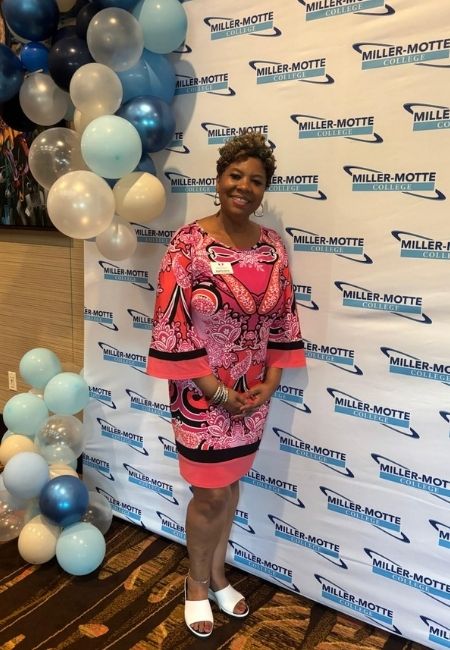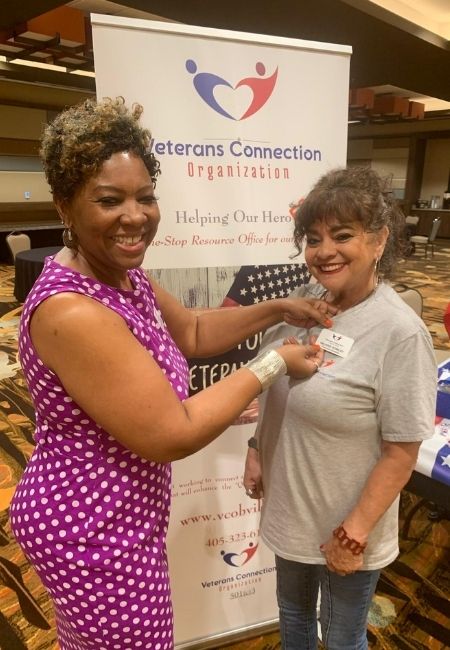

"A leader is one who knows the way, goes the way, and shows the way."
Introduction
The Story of a Servant, a Soldier, and a Shepherd of Souls
There are stories that entertain. There are stories that inform. And then there are stories that transform—stories that illuminate what it means to live with conviction, compassion, and courage. The life of Dr. Sharon Reese is one such story.
This biography is not just a recollection of her years in uniform or her decades of tireless community work—it is an intimate journey through the heart and mind of a woman who has made service her soul’s mission. From the structured decks of the U.S. Navy to the crowded rooms of veteran housing centers, from government hallways to grassroots movements, Dr. Reese has walked boldly where many fear to go: into the lives of the forgotten, the displaced, the underserved, and the unrecognized.
To understand her journey is to understand the true meaning of purpose.
Born with a natural sense of duty and empathy, Sharon’s calling was evident early on. When she enlisted in the United States Navy, she didn’t just join the military—she became a guardian of integrity, discipline, and resilience. Her military career, marked by honors and commendations, laid the foundation for a life that would forever revolve around serving others with dignity and strength.
But her story did not end with retirement. In many ways, it only began.
Where others might have rested after decades of service, Sharon chose to rise. She recognized a painful truth—that countless veterans, especially those returning from war, were falling through the cracks. She saw the gaps in the system, the weight of silence, and the urgency of action. Instead of waiting for someone else to lead, she became the leader veterans so desperately needed.
Through her work in the Department of Veterans Affairs and the Department of Housing and Urban Development, she became a policy architect, a casework commander, and an unstoppable advocate. Her impact spanned from managing complex systems to addressing the needs of veterans experiencing homelessness, trauma, and transition.
Then, in 2011, Dr. Sharon Reese founded what would become her life’s crown jewel—Veterans Connection Organization Inc. With a heart for healing and a vision for change, she transformed this organization into a nationwide force for hope. Not just a nonprofit, but a mission in motion—focused on education, readjustment, community reintegration, and holistic support for veterans and their families.
Phase 1 : Forged by Duty
“Discipline is the soul of an army.”

Long before she would come to be known as Dr. Sharon Reese, the celebrated leader, advocate, and CEO, she was simply known as Petty Officer Reese—a name that carried the weight of discipline, honor, and fierce determination. She wasn’t born into comfort or convenience; she was born into a world where strength was earned, respect was commanded, and the path ahead was forged through commitment, not privilege.
It was the summer of 1984 when Sharon took a bold step that would define the next two decades of her life—she enlisted in the United States Navy. In a world still evolving for women in uniform, Dr. Sharon stood tall, undeterred by the barriers that others saw. Her uniform was not just fabric—it was identity. It was purpose. It was the silent vow she made to herself and her country: I will serve, I will protect, and I will not waver.
Stationed at Naval Station, 32nd Street, San Diego, Dr. Sharon served as a Mechanical Planner—a position that demanded technical precision, split-second decisions, and unbreakable focus. In this role, she worked shoulder to shoulder with engineers, interpreting complex schematics and blueprints, ensuring that mechanical systems met rigorous military standards. She didn’t simply follow instructions—she became a problem solver, an interpreter of the invisible mechanics that kept ships, aircraft, and lives in motion.
She reviewed technical drawings not just as tasks, but as puzzles to be solved—puzzles that, if misread, could cost safety, performance, or lives. She navigated male-dominated environments not with defiance, but with unshakable competence, letting her work speak louder than words ever could. The Navy wasn’t just training her in machinery—it was molding her into a master of strategy, order, leadership, and technical command.
Across two full decades of service—from the Cold War era through Operation Desert Storm and beyond—Dr. Sharon earned not just rank, but reverence. Her dedication was officially recognized through numerous military honors, including:
Two Navy/Marine Corps Achievement Medals, awarded for exemplary professional achievement and leadership under demanding conditions.
Five Good Conduct Medals, proof of her spotless record, unflinching reliability, and sustained honorable service.
Meritorious Unit Commendation, Navy “E” Ribbons, Sea Service Deployment Ribbon, and others that told the story of not just what she did, but who she was.
Phase 2 : The Civilian Transition – Finding a New Frontline
“You may not control all the events that happen to you, but you can decide not to be reduced by them.”

When Petty Officer Sharon Reese removed her Navy uniform for the last time in 2004, she didn’t leave her mission behind—she simply exchanged battlefields. The military had forged her strength. Now it was time to channel that strength into a new kind of war: the silent, systemic struggles faced by veterans long after the flags were folded and the parades ended.
After two decades of honorable service, Sharon could have stepped back. But rest was never in her design—rebuilding was. In 2009, she entered federal service once again, this time as a Vocational Rehabilitation Specialist (VRS) with the U.S. Department of Veterans Affairs in Oklahoma City. It was here that her next chapter began—not in the defense of a nation, but in the defense of those who had already served it.
As a Vocational Rehabilitation Specialist, Dr. Reese wasn’t just managing paperwork—she was guiding broken lives toward healing. Many of her clients were veterans living in shelters, sleeping in cars, or navigating mental health crises. They were disabled, disillusioned, and often completely disconnected from the system meant to support them.
She met them not from behind a desk—but eye to eye, heart to heart.
Sharon’s work placed her at the epicenter of a critical turning point in VA history: the rollout of the Five-Year Plan to End Veteran Homelessness, initiated by then-Secretary of Veterans Affairs, Eric Shinseki in 2009. It was a bold, historic call to action. And Dr. Reese answered that call—not as a bystander, but as a frontline architect of change.
Her role was expansive. She collaborated directly with teams from HUD-VASH (HUD–VA Supportive Housing), Health Care for Homeless Veterans (HCHV), Grant and Per Diem (GPD) programs, Community Residential Care, and Veterans Justice Outreach (VJO). This wasn’t bureaucracy—this was boots-on-the-ground intervention.
Dr. Reese didn’t just coordinate services; she helped veterans reconnect with their humanity. She walked with them—sometimes quite literally—down alleyways, under bridges, and through emergency shelters, seeking out those who had been left behind by both war and society. She listened without judgment. She advised with care. She acted with urgency.
Phase 3 : The Quiet Power of Policy
“In matters of style, swim with the current; in matters of principle, stand like a rock.”

By 2012, after years of standing shoulder-to-shoulder with veterans on the front lines of advocacy and support, Dr. Sharon Reese stepped into a new, less visible—but equally powerful—arena: policy and administration within the U.S. Department of Housing and Urban Development (HUD). It was here, in the seemingly quiet corridors of federal governance, that Sharon would harness her discipline, compassion, and unshakable sense of justice to transform complexity into clarity, and policies into instruments of equity.
Her official role was that of a Housing Program Specialist (GS-12) at the National Servicing Center (NSC) in Oklahoma City. But titles never defined Sharon’s impact—her presence did.
She wasn’t just part of the system. She became one of its most trusted stewards.
For many, the world of federal housing programs is a tangled web of acronyms, deadlines, legal language, and digital platforms. But for Dr. Sharon, these were not walls—they were pathways waiting to be cleared.
Each day, she immersed herself in the intricate frameworks of HUD’s operations: HUD Mortgagee Letters, Federal Register Notices, HUD Handbook 4330.1, FHA Connection, SMART (Single Family Mortgage Asset Recovery Technology) System, CTS (Correspondence Tracking System).
Where others saw data, she saw stories. Behind every federal memo or inquiry was a family facing foreclosure. A widow trying to keep her home. A disabled veteran confused by letters from Washington. Sharon read between the lines. She made policy personal.
As the NSC Correspondence Tracking System (CTS) Coordinator, she served as the nerve center for critical inquiries from across the country—routed from the White House, Congress, the Office of Inspector General, HUD Field Directors, and national hotlines. She tracked, processed, and responded to hundreds of pieces of high-level correspondence with accuracy, speed, and, most importantly, empathy.
Sharon was not just responding to inquiries—she was safeguarding trust between citizens and their government.
Efficiency and compassion rarely go hand-in-hand in large bureaucracies. But Dr. Reese bridged that gap.
She monitored deadlines religiously—not because she feared repercussions, but because she understood what delay meant to the people waiting. She ensured her team and colleagues met obligations with precision. Her office wasn’t run on stress—it was run on discipline and dignity.